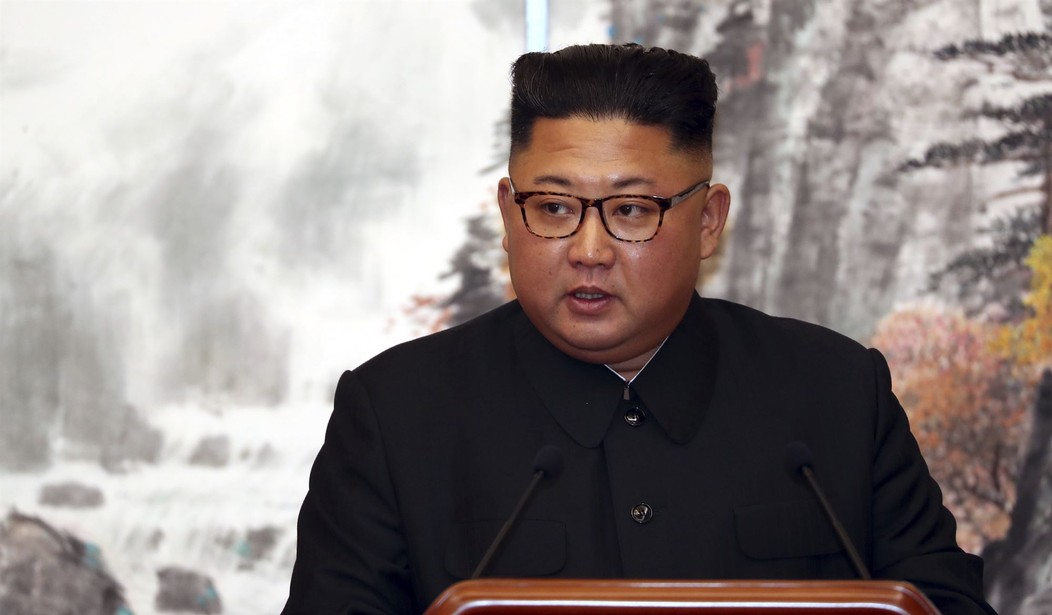Despite their incessant drumbeat about global warming, mainstream media knows climate doomsday is not imminent and are probably uncomfortable when doomsayers like Congresswoman Alexandra Ocasio-Cortez (D-NY) say, “The world will end in 12 years” unless we do something, drastic, now.
But they are well aware that political catastrophes could cause much greater harm to humanity—not in the far distant future, but within months, weeks, or even a single day.
That’s why climate change and the “Green New Deal” finally disappeared from headlines this week, trumped by news of more immediate threats.
The Return of Nuclear War as an Imminent Threat
With the end of the Cold War, the risk of nuclear war has receded from many people’s fears. Certainly the likelihood of a major nuclear exchange between the United States and the Soviet Union, or now Russia, has declined since the nervous 1960s and 1970s.
But the threat is reviving in the form of rogue nuclear states.
North Korea is the most notorious. President Donald Trump’s second meeting with North Korean dictator Kim Jong Un, which ended with no agreement when Trump refused Kim’s demand that sanctions be lifted, occupied headlines worldwide. Even climate-alarmist CNN abandoned climate change headlines to focus on the historic meeting in Vietnam.
Meanwhile, two weeks ago, India and Pakistan were on the verge of war. The reason? A surgical strike by India’s Air Force on a terrorist camp inside Pakistan, and Pakistan’s response to it.
As many as 16 Indian Air Force fighter jets using 2200 pounds of laser-guided bombs in a 30-minute air raid demolished the camp. It was the same camp (not far from the infamous Abbottabad, where American forces found and killed Osama Bin Laden) from which terrorists launched an attack earlier in February in Jammu & Kashmir, killing around 40 Indian paramilitary forces.
Recommended
In response, Pakistani fighter jets engaged in air combat with Indian fighters. One jet from each country was shot down. The Indian pilot was captured by Pakistan’s army after he was ejected. Pakistani Prime Minister Imran Khan told his parliament on Thursday that the pilot would be released as a “peace gesture.”
But tensions remained high. Pakistan closed its entire airspace to commercial traffic. India closed its northern airspace temporarily.Thousands of flights were affected worldwide. Thai Airways cancelled most of its overnight flights to Europe, and all flights normally routed through Pakistani airspace were re-routed.
Both India and Pakistan are nuclear armed, and with volatile leadership in both states, the dangers from a possible nuclear conflict far exceed those touted by climate fear mongers at the United Nations and the leftist environmentalists who support them.
Political Bombshells Overshadow Climate Alarm
While American media focused on testimony by Michael Cohen, headed for prison for lying to Congress, former Canadian Attorney General Jody Wilson-Raybould dropped what could be the biggest bombshell in Canadian political history—with a possible major impact on Canadian climate and energy policy.
The Star reported, “Wilson-Raybould said she was the target of ‘veiled threats' and a ‘consistent and sustained’ effort by Canadian Prime Minister Justin Trudeau and his senior officials to politically interfere in criminal charges against [engineering company] SNC-Lavalin,” which serves the oil and gas, nuclear, mining and metallurgical, and clean power industries.
If confirmed, this could be a criminal offense. Opposition party leader Andrew Scheer called for an immediate investigation and formally asked Trudeau to resign. The scandal could become a deciding factor in Canada’s upcoming election, joining many Canadians’s dislike for carbon taxes Trudeau’s party has imposed.
Across the Atlantic, Brexit has dominated news in Europe, and its environmental aspects have received little to no coverage compared with that given to its economic and developmental aspects.
There are endless examples from around the world of people beginning to realize the futility of climate alarmism and showing increasing concern for more serious matters like domestic tax rates, ethical leadership, energy, and economic development.
Nonetheless, expect the mainstream media to return to their obsession with climate alarmism. They’ve made it a habit.
Vijay Jayaraj (M.Sc., Environmental Science, University of East Anglia, England), Research Contributor for the Cornwall Alliance for the Stewardship of Creation, lives in Chennai, India.

























Join the conversation as a VIP Member